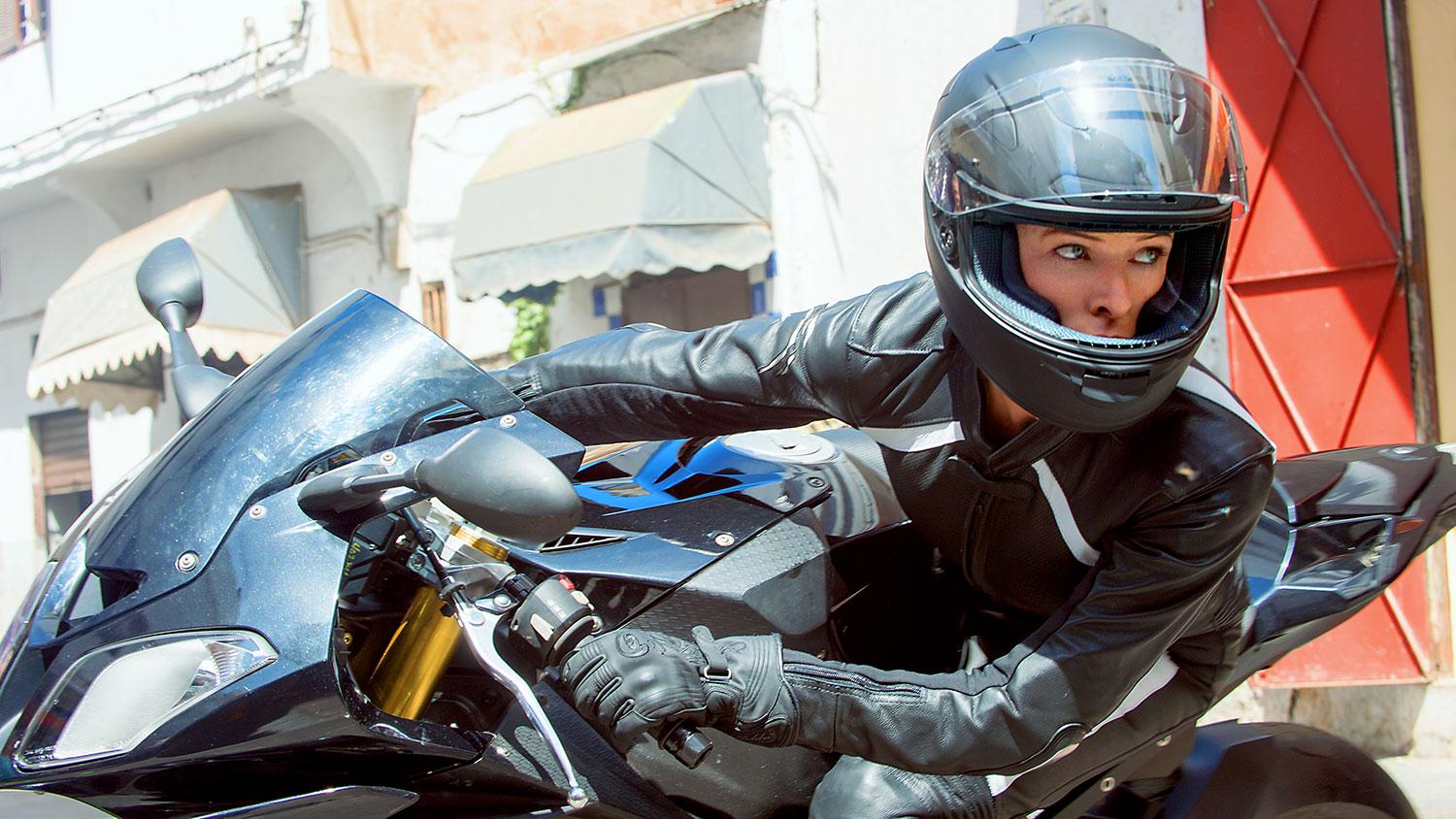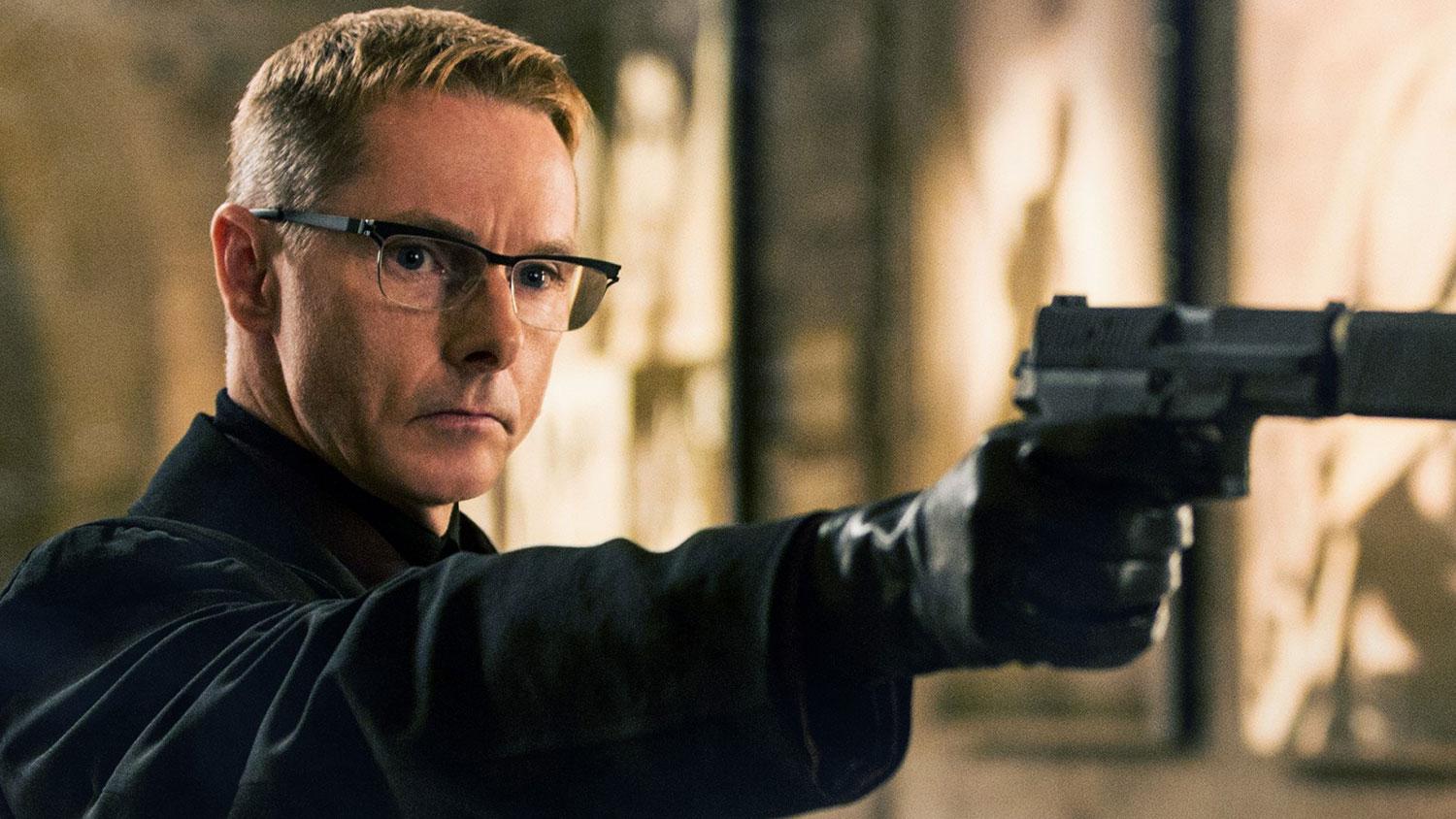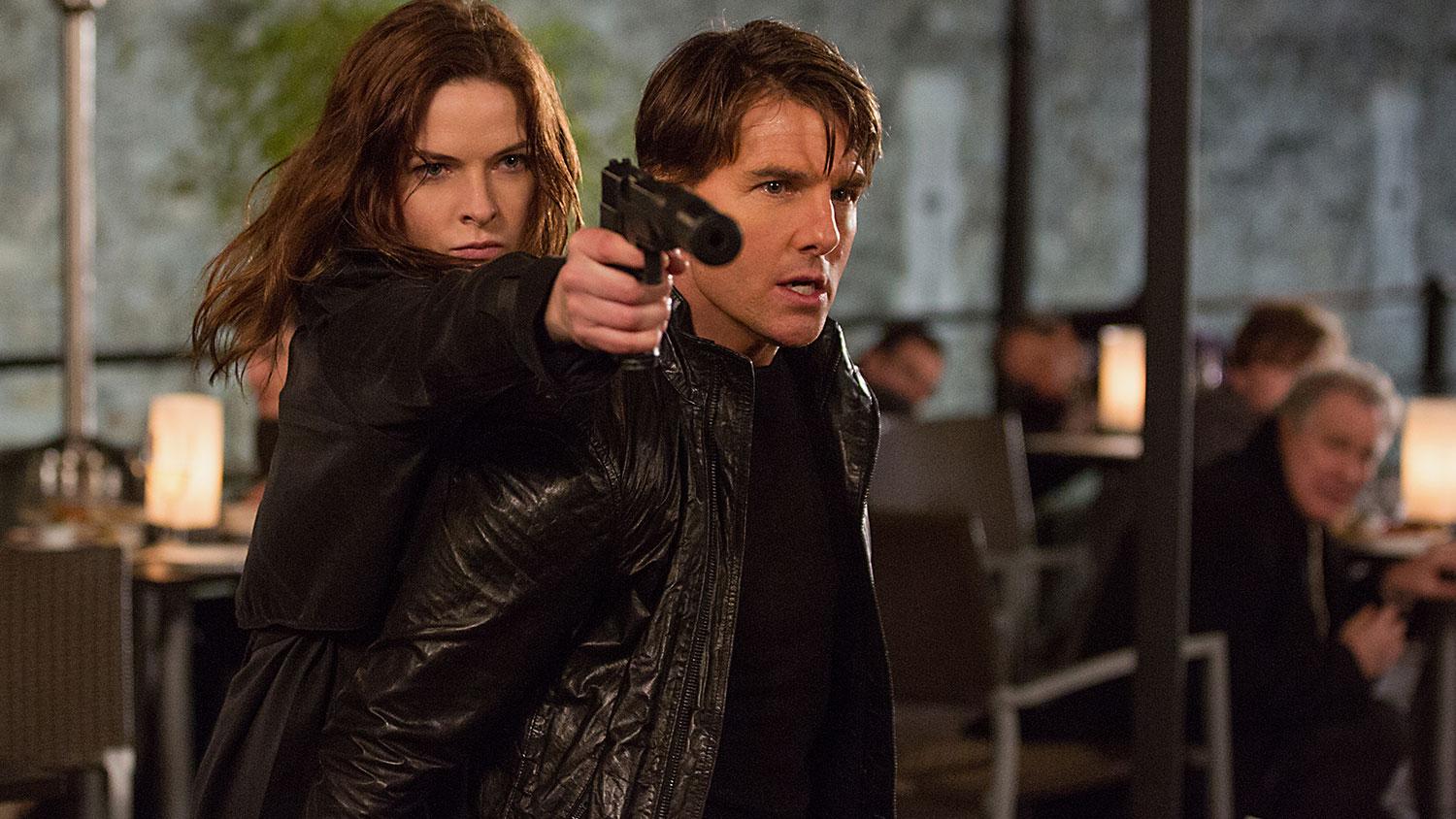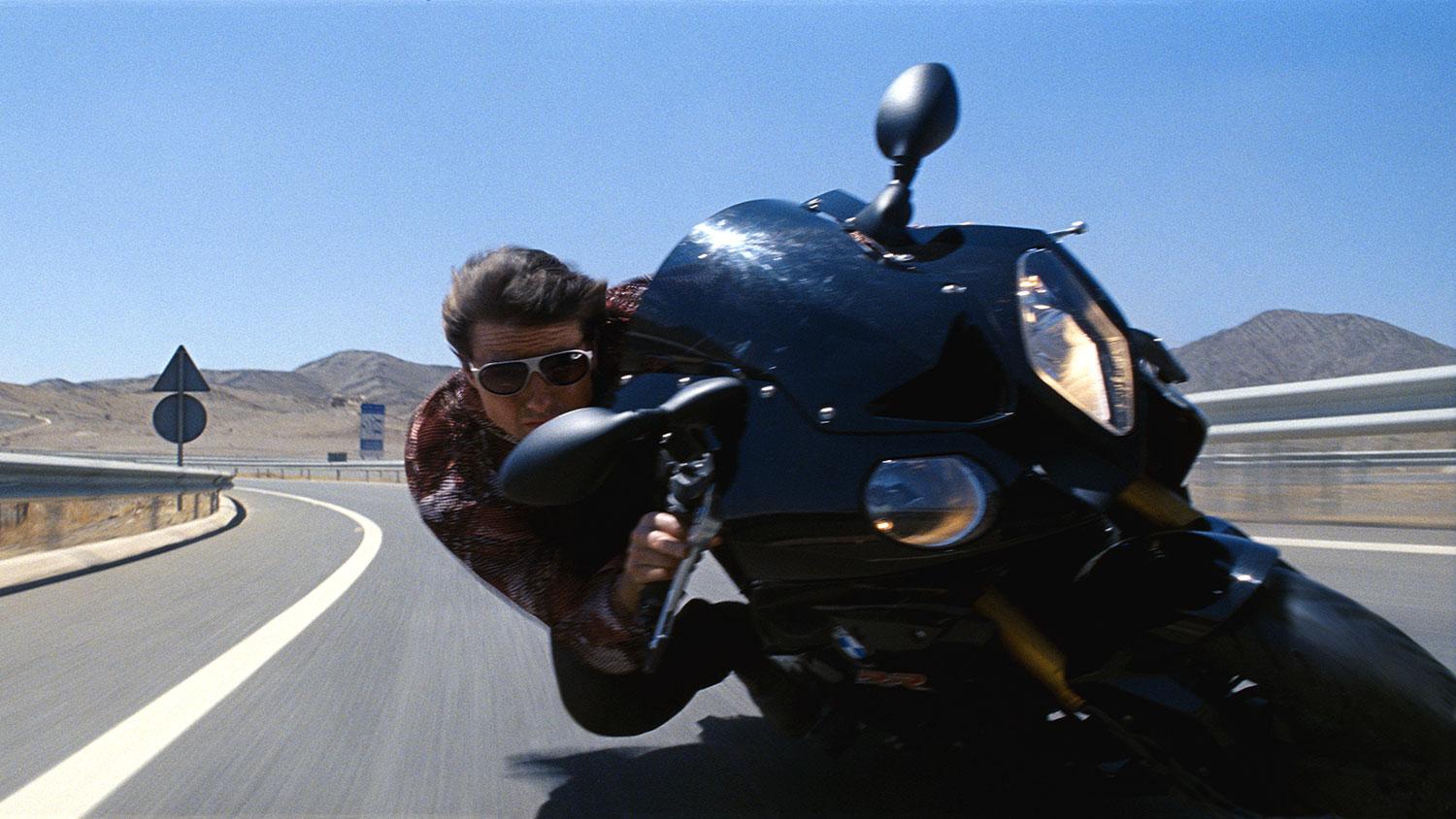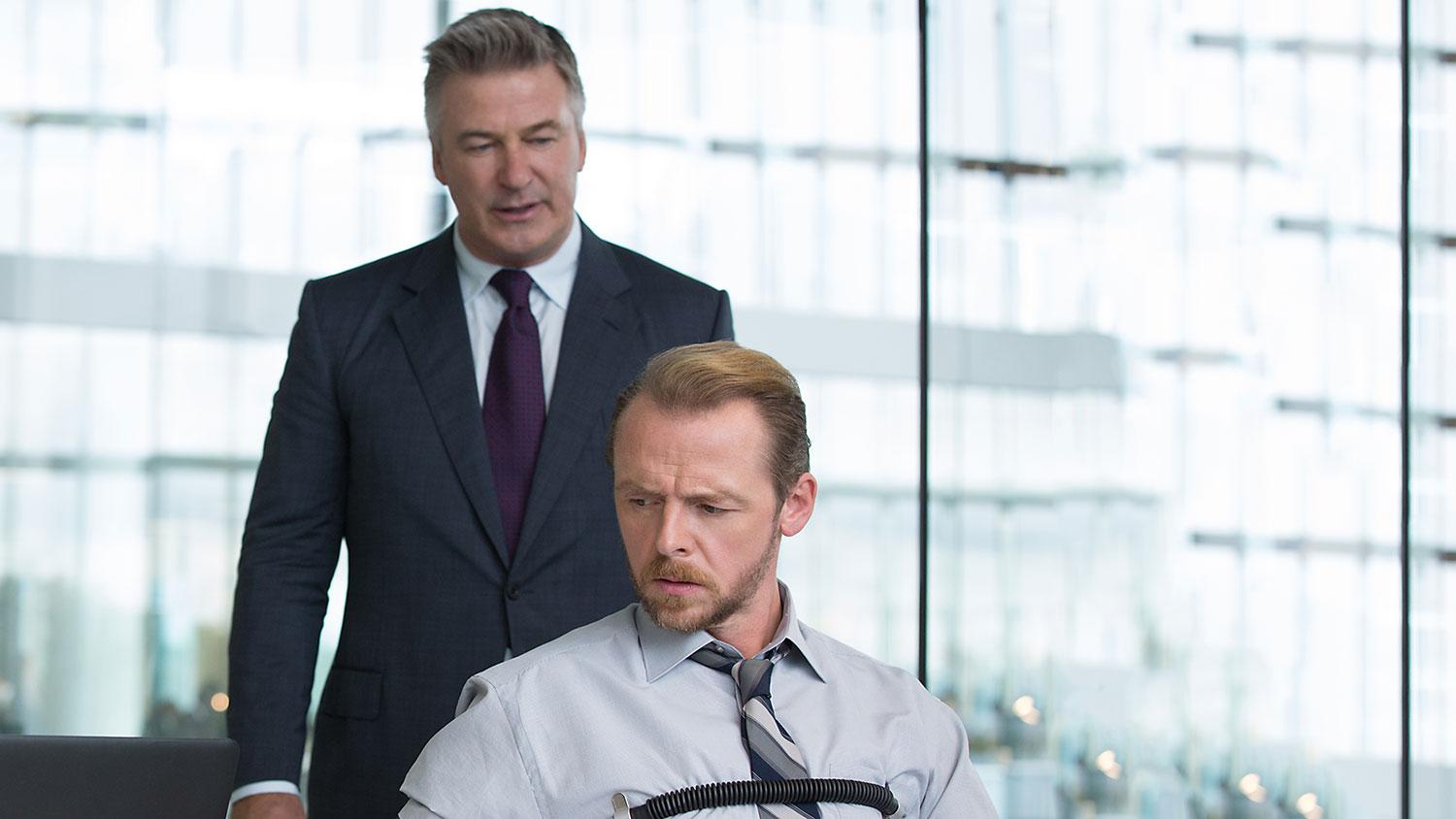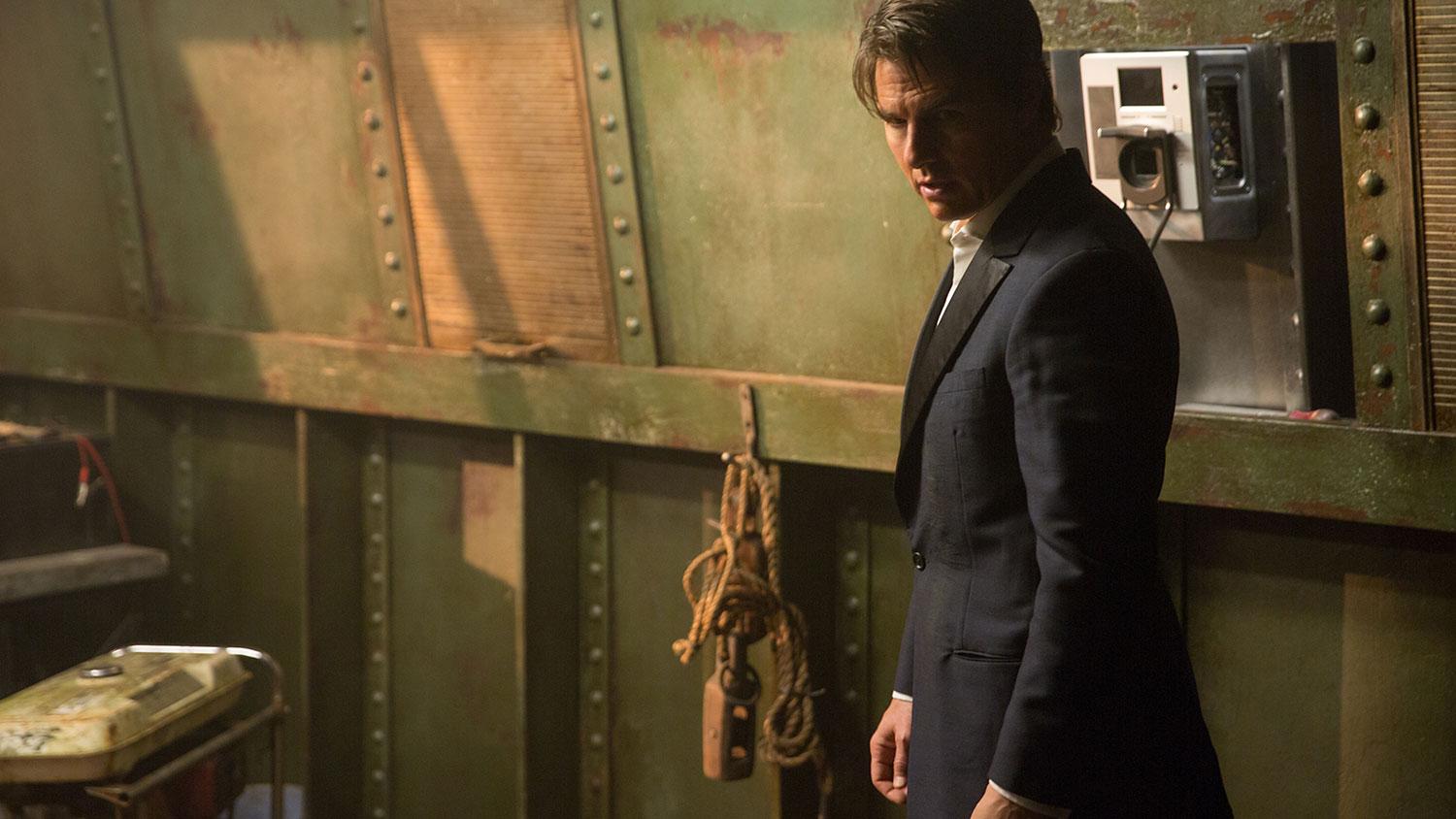“Ethan Hunt is a gambler, and one day, his luck will run out, and thousands of people will pay the price. Who will be the villain then?”
When Syndicate super villain Solomon Lane slithers these words out of his serpentine lips, my first instinct is to scoff. Of course Ethan Hunt will never become the villain. He’s Tom Cruise realized in all of his action hero glory. There’s no chance that the moral worm will ever turn for this legendary IMF operative.
And then the words of another pop culture good-guy-gone-rogue come to mind: “You either die a hero, or you live long enough to see yourself become the villain.”
My brain starts to mirror Ethan Hunt’s during the iconic scene in the first Mission: Impossible movie, when he pieces together that his friend and mentor Jim Phelps is the man who betrayed and killed his fellow IMF agents. I remember that Phelps himself was the heart and moral compass of Mission: Impossible for decades before the movies ever came along. I recall the uproar from fans of the series, when Jon Voight’s Phelps was revealed to be the first film’s true villain, shattering a hero’s legacy.

I realize it’s not impossible that Ethan Hunt could one day follow suit, and that realization leads to two more: (1) Wow, Evil Ethan could be cool! (2) Wow, even if it never happens, I really hope Mission: Impossible lives long enough for Evil Ethan to even become a possibility.
One of these days, it’s entirely possible that this franchise will go the way of Harvey Dent, transforming itself from a bright beacon for modern action blockbusters to something disfigured and unrecognizable and awful to behold. That day has not arrived, certainly not with Mission: Impossible – Rogue Nation. It’s the fifth film in the series, and it’s as riveting as any that have come before.
Directed by Christopher McQuarrie, who previously teamed up with Cruise on Jack Reacher for Paramount, Rogue Nation sees Ethan on the trail of a group called the Syndicate — rogue operatives with all the training and ability of the Impossible Mission Force, and without any of the moral boundaries. Ethan’s pursuit of these villains is like challenging a cheetah to a footrace: ill-advised, with an impossible chance for success. Then again, “impossible” has a different definition for a guy like Ethan Hunt.
Ilsa Faust is the best new addition to the Mission: Impossible universe since… well, Ethan Hunt, honestly.
It helps that Cruise’s veteran spy has some of his most reliable players along for the ride. Simon Pegg returns as Benji Dunn, the closest thing Ethan has to a best friend, boasting a more pivotal role here than either of his past two Mission: Impossible appearances; he provides the usual comic relief, but a surprising amount of heart, too. Ving Rhames, the only person not named Tom Cruise to appear in every single Mission: Impossible, wouldn’t miss Rogue Nation for the world, bringing old-school weight to the proceedings as hacker Luther Stickell. Jeremy Renner is the holdover from Ghost Protocol, returning in a more bureaucratic role than last time. He’s fine, I guess? Every time he appeared on screen, I couldn’t help but wonder how much more enjoyable his role would be if occupied by Paula Patton’s Jane Carter, but alas. Renner is my biggest gripe toward all of Rogue Nation, by the way, which should tell you a lot.
But it’s the new players that make Rogue Nation remarkable. Alec Baldwin is perfectly Baldwinian as CIA suit Alan Hunley, another addition to the great pantheon of Mission: Impossible’s noble douches, like Eugene Kittridge. Sean Harris is skin-crawlingly creepy as Syndicate leader Solomon Lane, seemingly ahead of Hunt at every single turn. Both men are fantastic, but both men, and everyone else in the film, pale in comparison to the true secret weapon: Rebecca Ferguson, the Golden Globe-nominated actress who climbs to the tippy-top of Rogue Nation and sinks her knives right in, without any sign of letting go.
Even if Mission: Impossible is Tom Cruise’s franchise, Rogue Nation is Ferguson’s movie. She plays Ilsa Faust, a Syndicate operative with a whole lot more going on than what meets the eye — a notion that’s immediately apparent from her very first scene, and firmly in place throughout the rest of her screen time. Cool and cunning, and capable of killing you with a look just as easily as she could with her hands, Ilsa Faust is the best new addition to the Mission: Impossible universe since… well, Ethan Hunt, honestly. Somebody get Ferguson her own action movie franchise, stat.
The best part about Faust is that you never quite know where she stands, which speaks to the heart of what makes Rogue Nation such a success: You never quite know where the movie stands. It’s a twisting and turning narrative in the spirit of Brian De Palma’s Mission: Impossible, albeit not nearly as complicated. Still, Rogue Nation is as close to a grounded spy thriller as we’ve seen from these movies since the De Palma original. Yes, there are still crazy Cruise stunts throughout the movie, but the biggest one — the airplane sequence you’ve seen in trailers and posters — departs the runway immediately, leaving us on the tarmac with a quieter movie that becomes so much more intense due to the subdued sound.
Let’s not split hairs: Rogue Nation is as strong as the Mission: Impossible movies have ever been.
There are motorcycle chases, there are hold-your-breath heists, and that strap-yourself-to-an-airplane stunt is nothing short of insane. But there’s also the opera scene, hushed and heart-pounding, easily the strongest sequence in the entire movie, and a contender for best sequence in the entire Mission: Impossible series. There’s Ethan and Ilsa running through the streets of London in the dead of night, silenced bullets piercing brick walls, panicked footsteps hurriedly echoing throughout the sleeping city. There’s Ethan, blindsided and furious, pounding his hands against unbreakable glass as gas fills his lungs, finally inching toward the classic definition of the word “impossible.” It’s not all cloak-and-dagger all the time, but Rogue Nation manages to marry the espionage spirit of Mission: Impossible to the smart blockbuster beats of Mission: Impossible III in a way that Ghost Protocol didn’t quite pull off — and that’s less a knock against the great Ghost Protocol than it is a big thumbs up for Rogue Nation.
As for Tom Cruise? It should come as no surprise to anyone who watched Cruise wage a lip-syncing war against Jimmy Fallon a few nights ago that the man still has it, and then some. Lane’s comments about Ethan Hunt as a gambler apply to Cruise himself, of course, given the death-defying stunts the Hollywood icon still puts himself through as a 53-year-old man. But he’s not gambling when it comes to Mission: Impossible as a franchise. For my money, Rogue Nation lands just a notch below M:I-3 because I’m such an Alias dork, and two notches below the original because it’s such a classic. But the space between notches is almost negligible, a game of splitting hairs.
So, let’s not split hairs: Rogue Nation is as strong as the Mission: Impossible movies have ever been, and that’s saying something, given that this is a film franchise just one year shy of its 20th anniversary. With all due respect to Solomon Lane and Harvey Dent, I don’t think anyone will be rooting against Ethan Hunt anytime soon.
